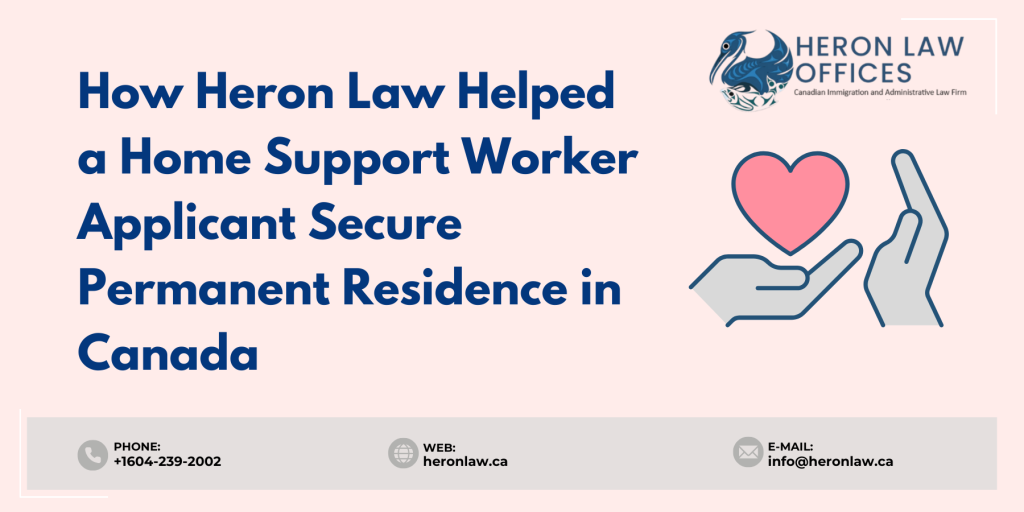We helped an applicant under the Home Support Worker Class and their accompanying dependent spouse and child satisfy Immigration, Refugees and Citizenship Canada (“IRCC”) that they met the eligibility requirements for permanent residence (“PR”).
Background
The family arrived in Canada in early 2019, with the parents accompanying their child who was enrolled in a leading private school.
The Principal Applicant enrolled in a Personal Support Worker college program in early 2020 and began working as an in-home personal support worker in Spring 2022. The Principal Applicant submitted their PR application under the Home Support Worker Class in Fall 2023.
The IRCC Request: Additional Documents and Clarifications
A few months ago, the Principal Applicant was asked to provide the following information:
- a Notice of Assessment for 2023;
- bank statements showing employment payment deposits and other bank transactions for all dates listed on their Schedule 19B (Work Experience) form;
- explanations and proof of financial support during periods of unemployment for the Principal Applicant and their spouse; and
- updated Schedule A and Additional Family Information forms.
Our Strategic Response to IRCC
Our office prepared the response to IRCC. For example, the Principal Applicant explained that minor discrepancies in their payslips were explained by the fact that they were paid by their former employer through e-transfer and that if the employer reached the e-transfer limit, the remainder was sent at a later time. The Principal Applicant also explained that they relied on personal savings while unemployed and that after the Principal Applicant started working, they were able to cover the family’s expenses.
Additionally, our office attached the program delivery instructions showing that as of 24 June 2024, the policy for Home Support Worker applications – including those in processing – had been amended so that only six months of qualifying work experience was needed. We explained that the Principal Applicant surpassed this amount and had already provided evidence of their work experience in this field, but we wished to confirm the policy’s operability and applicability in the event that IRCC had any concerns about the Principal Applicant’s total work hours.
A month later, the Principal Applicant received a letter confirming that all eligibility requirements had been met, followed by an invitation to access pre-arrival services. In the interim, the Principal Applicant and their spouse were issued open work permits, and their child was issued a visitor record, all of which expire in Summer 2026.
The clients received their Confirmations of Permanent Residence (“COPRs”) two weeks later.
This client kindly left us a positive review:





